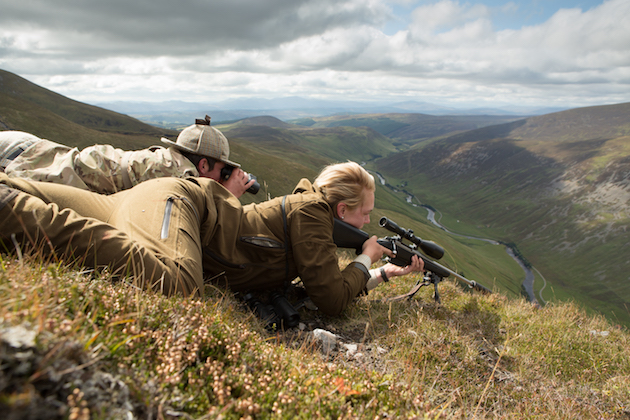Is fieldsports the most equal of sports?
As the gender debate erupts in competitive fishing, Alasdair Mitchell notes that fieldsports may be more equal than most other sports

Last winter, I nearly bust a gut hauling a big red hind into the back of my pickup. I had already dragged the beast uphill and across a deep ditch alongside a forestry track. But it was getting it up and on to the tailgate that nearly killed me. Yes, I should have been better equipped: even a plank, to slide the carcass up, would have made a big difference. I managed in the end, though I was left with the grim confirmation that I am no longer as strong as I was.
Not that hoiking a heavy, slippery deer carcass up a height can ever be easy for anybody. I am constantly amazed at the way Highland gillies manage to get a beast on to a pony, often making skilful use of a ledge or hump in the hillside. Of course, I always help them. But you have to be careful what you say nowadays. Some years ago, I wrote of my admiration for the way a young woman dealt with a hind carcass that must have weighed at least as much as she did. Frankly, I could not have done the equivalent. But my words came back to haunt me on the letters page, when an aspiring female stalker took me to task for what she saw as my outmoded preconceptions. (Read more on working with the garron – the Highland pony.)
Well, times they are a-changing. I was intrigued to read recently that half the members of the England women’s shore angling team resigned when a person who had been born a man was selected by the governing body. The team captain complained that the new member would have a physical advantage, with better upper body strength enabling her to cast longer distances with heavier tackle. The captain told the Daily Mail: “I have no grudge personally. This is an advantage to our team, but we find it totally unfair to other nations. Transgender competitors are ruining our sport, and the Angling Trust will not listen to our views, so this is why myself and the team decided to pull out.”
Now, I wouldn’t have thought that casting a bait came into the same league as throwing a big deer, but I confess I have limited experience of sea-fishing. For the types of fishing that I familiar with, I cannot see how gender could possibly influence success. There is a long history of women fishing. Georgina Ballantine caught Britain’s biggest rod-caught salmon on the Tay back in 1922. As for deer, the Marchioness of Breadalbane’s classic stalking memoir, The High Tops of Black Mount, was firsIst published in 1907. It strikes me that inherent gender equality is a welcome feature of most fieldsports.
Rugged conditions
Not everybody agrees, of course. An old Army friend of mine went on a 10-day horseback hunt for maral, the giant Caspian red deer, in high mountains. This entailed covering huge distances on Mongolian horses and sleeping out. He had difficulty in persuading the local hunting guides to accept the female member of his party, as they said women can’t ride, let alone cope with such rugged conditions. Yet she happens to be the joint-master of a famous pack of foxhounds. She not only kept up but actually outrode some of those same guides. They probably still talk about her around the campfire.








